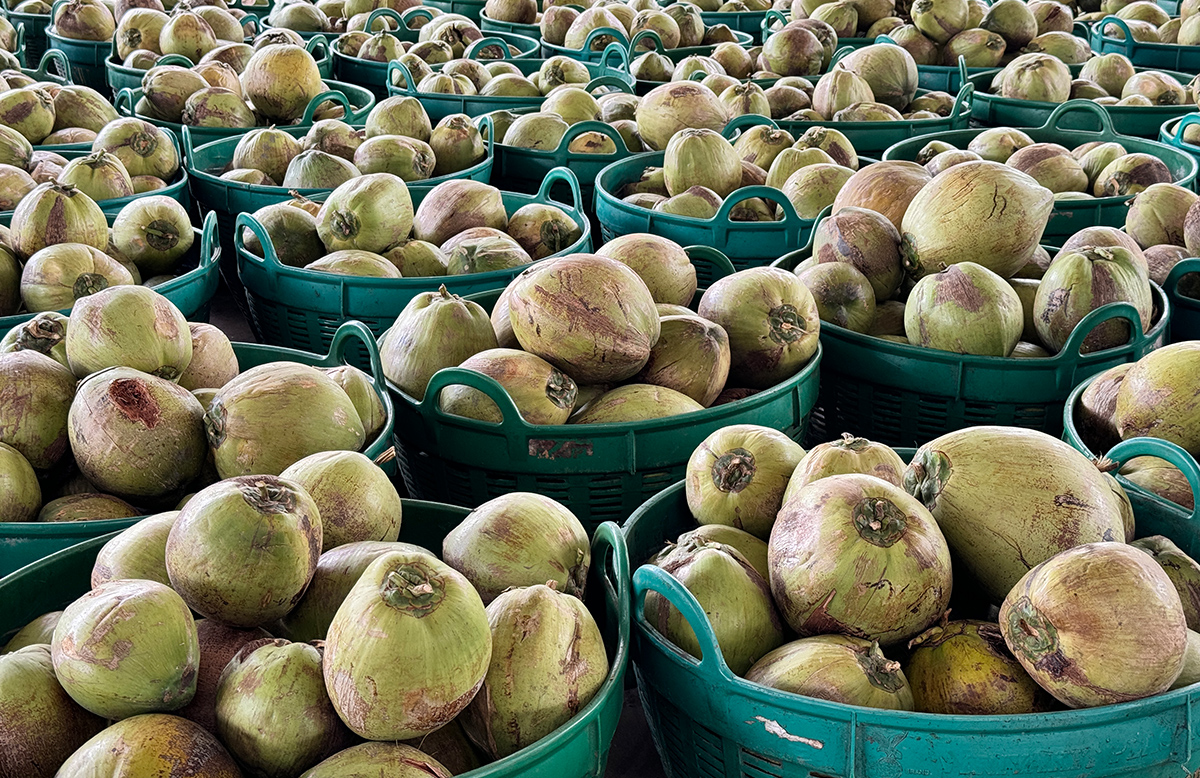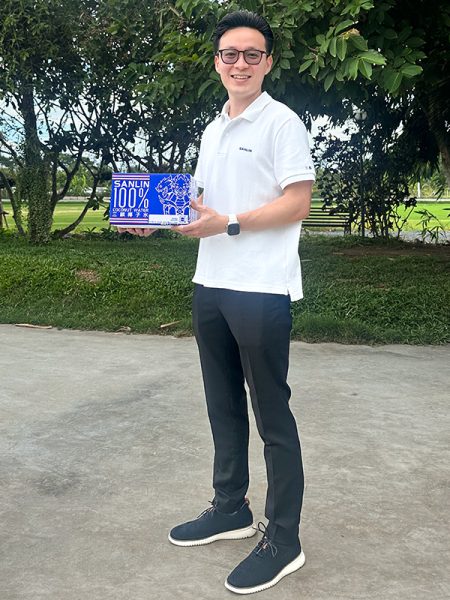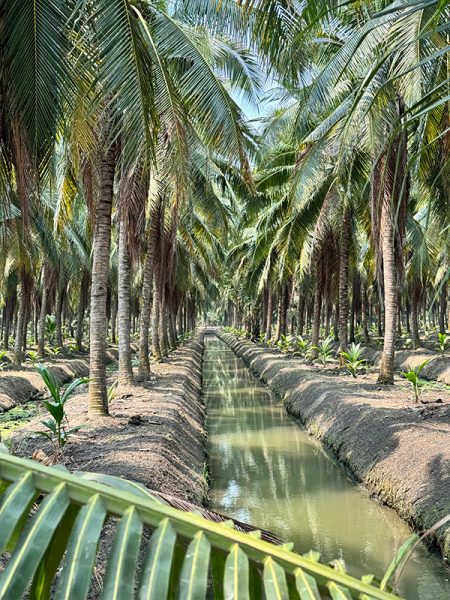Offshoots
The Family Way
Justin Meng carries the values of a family-run business, learned while he was a Renk Scholar at CALS, into his own business ventures abroad.

Justin Meng BS’15 came to UW–Madison from Guangdong, China, as a pre-business major with hopes of going into finance. But as he began exploring other fields — physics and statistics — he struggled to find the right fit. The turning point came thanks to his friend, Annan Chen BS’15, a CALS student with plans to launch a career with his family’s food import business. The connection led Meng to also explore CALS, where he found a culture he admired and a new path to a career in business.

Meng’s first CALS classes, Animal Science 101 and 102, quickly became favorites. He recalls being inspired by the late Milton Sunde MS’49, PhD’50, a professor emeritus who continued to teach the next generation of CALS students as a guest lecturer after his retirement.
“He was quite proud and happy about his work,” Meng says. “That drew me in because I felt how people love what they do. You have to love what you do to make an impact.”
The experience prompted Meng to major in agricultural and applied economics (AAE) through CALS. During his time with the college, he found other passionate professors, including Sheldon Du, who shaped his journey. Meng worked with Du on a Chicago commodity trading competition. He later received the prestigious Renk Scholarship, which helps students with financial support, networking, and business skills training. It’s funded by the Renk family of Sun Prairie, Wisconsin — the founders of the Renk Seed Company.
For Meng, the Renk scholarship stood out for one key reason: inclusivity. “Most scholarships exclude international students,” he says. “Renk didn’t care where you were from, they just cared about your potential.”
Through the Renk program, Meng visited with representatives of industry-leading companies such as Pepsi and John Deere. But the most meaningful trip was to the Renk family farm. Meng says the farm embodies more than just business success. It represents resilience, legacy, and the blending of values with a business — something that only a family business can achieve.
“Family businesses have a kind of trust and patience within them that you don’t always see everywhere,” he says.
These were the ideals Meng and Annan knew they wanted to bring to their own family food business, originally based in Xiamen, China. After graduating, Meng earned a graduate degree in applied economics from Cornell University and worked in Boston for the economic consulting firm Analysis Group. Meanwhile, Annan returned to China to expand his family’s business into consumer-ready products.
In 2022, after the company was established, Meng joined as general manager to help scale it. First, he stopped at UW to reconnect with CALS faculty, including AAE professor and department chair Guanming Shi. Shi recalls the visit warmly.
“He had already graduated years ago, was preparing to start something exciting, and yet he took the time to come back and say hello,” she says. “That small gesture showed gratitude, thoughtfulness, and character. It made me feel he was going to be successful.”

Today, their company, Sanlin, is one of China’s most popular coconut water brands and sells its products in every province. Unlike beverage giants with thousands of employees, Sanlin operates with just 55. They are known for their unique flavor made possible by a decades-long partnership with a Thai coconut supplier.
“Most [coconut] factories in Thailand work with multiple brands,” Meng says. “For now, we built the trust that we don’t buy coconut water from anyone else, and they don’t sell to anyone else. That’s how we got here today. Those two conditions give us the unique flavor we have in China.” Meng emphasizes that this is not an exclusive contract but rather a mutually beneficial arrangement that suits both family businesses for the time being.
Sanlin also sets itself apart with lower prices than other major drink brands, Meng says, by running operations in-house as a family business would. This cuts costs related to marketing, logistics, and distributor rebates and passes savings to consumers. “We started as a family business. That’s our root,” Meng explains. “We’re so thankful for everything that has helped us get this far. And now our goal is to build something that can stand alongside the world’s best.”
UW connections still run deep in Meng’s life and business. Three of Sanlin’s top leaders are Badgers, and his first U.S. coconut water client was J&P Tian An Fresh Market, with locations on State Street and Watts Road in Madison. On a personal level, Madison also introduced Meng to his closest friends and his wife, UW alum Yuwei Gao.
“Warren Buffett says the two most important people in your life are who you work with and who you live with,” Meng says with a smile. “For me, both are Badgers.”
Looking ahead, Meng is committed to honoring the lessons learned at CALS. Whether launching new beverage lines, running his newly opened restaurant, Sanlin The Island in Shenzhen, or exploring opportunities in yogurt and whiskey, he is guided by the same values.
“China has been developing really fast in the past several decades, and few companies manage to survive more than a couple of economic cycles,” he says. “But with the right values of trust, patience, and determination, you can build something that lasts. That’s what CALS taught me.”
This article was posted in Fall 2025, Offshoots and tagged agricultural and applied economics, Guanming Shi, Renk Agribusiness Institute, Renk Scholarship, Sheldon Du.
